Even to native speakers, “there,” “their,” and “they’re are often mixed up by too many people.
Although they all sound the same, there is a huge difference between the meanings behind each term.
How do you know which word to use and when?
What is the meaning belonging to each word?
If you want to become a better writer and learn more about English grammar, understanding the difference between “their,” “they’re,” and “there” is essential.
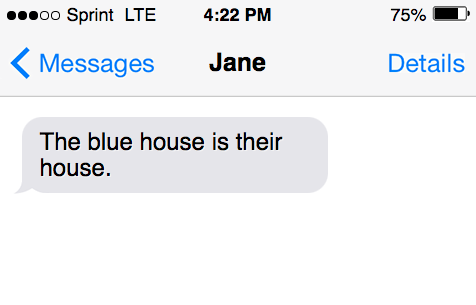
Are there different meanings?
Put simply, there is a significant difference between “their,” “there,” and “they’re,” and it’s not just the spelling.
These common words are frequently mixed up in written English.
However, there are specific grammar rules to abide by when using these terms.
Not only is there a difference in the words’ parts of speech, but the definitions differ too.
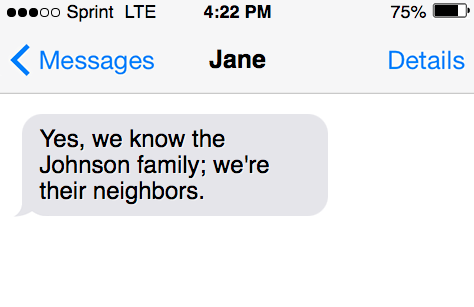
Their: possessive adjective
“Their” is the possessive form of “they.”
That said, the term is used as a pronoun to show what belongs to, relates to, or is made or done by certain people, animals, or things.
Examples
- “The blue house is their house.”
- “Yes, we know the Johnson family; we’re their neighbors.”
- “All the basketball players had their shoes tied.”
- “It was their idea to start the cooking at 7 PM sharp.”
- “Why do the trees lose their leaves every year?”
- “What is the difference between their cake and ours?”
What is a possessive term?
A possessive adjective, pronoun, or noun shows possession or ownership over something.
A possessive adjective, like “their,” replaces a noun that was already mentioned in the sentence.
Therefore, these terms help make sentences shorter and more concise.
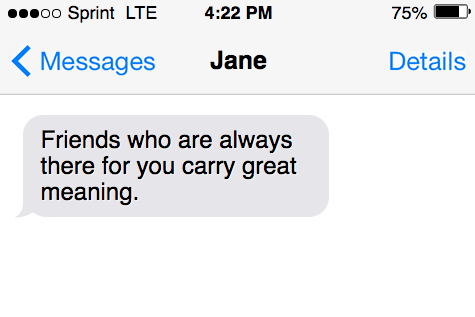
Notice this example:
“Before the group walked away, I asked if I could borrow their textbook.”
In this case, “their” is possessive because it shows that the group owns the textbook.
Of course, it still makes sense to write:
“Before the group walked away, I asked if I could borrow the group’s textbook.”
However, the statement reads more choppy than using a possessive.
“Theirs” is a possessive pronoun.
Again, this is a pronoun introducing that a previously mentioned person, place, or thing in a statement has ownership of something.
“David didn’t belong to a team, so he asked to join theirs.”
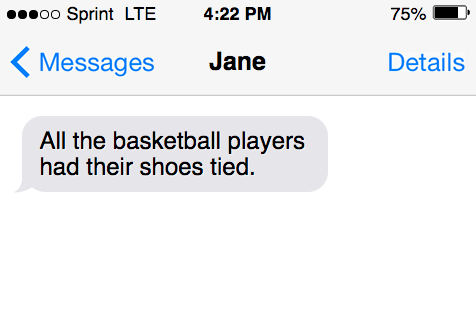
There: showing location
“There” has many different uses in writing, as it can act as an adjective, noun, and adverb.
As an adverb, “there” is defined as “In or at that place.”
Essentially, this definition gives the reader a sense of a location, whether that be specific or abstract.
The noun “there” is defined as “That point, place, or position.”
Again, the correct way to use “there” is in reference to a place or location.
Lastly, as an adjective, “there” is used for “emphasis, especially after a demonstrative pronoun or a noun modified by a demonstration adjective.”
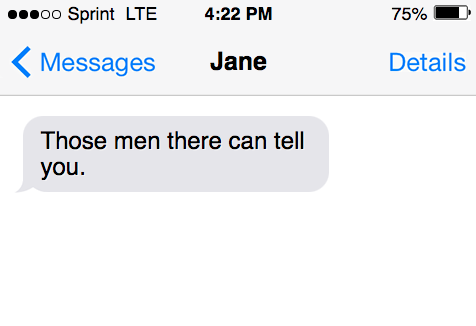
Examples
- “I placed the hat over there.”
- “Those men there can tell you.”
- “Friends who are always there for you carry great meaning.”
- “There is hope I still pass the class.”
- “Stay there; I will be right back.”
They’re: A contraction of two words
“They’re” is an example of a contraction, meaning “they are.”
Using this spelling, “they’re” shows that more than one person is doing something.
In writing, the clause “they” can be used to refer to any size group of people, big or small.
Examples
- “They’re about to introduce the new set of rules for recess.”
- “The subject is one they’re all taking together.”
- “They’re aware of the mistakes the group made in the past.”
- “Once they’re sure the location exists, the team will travel by boat.”
- “They’re in possession of the most expensive fish tank in the world.”
What is a contraction?
In writing, a contraction is most frequently a combination of two words separated by an apostrophe.
Also, contractions have the same meaning in one word as they do in two.
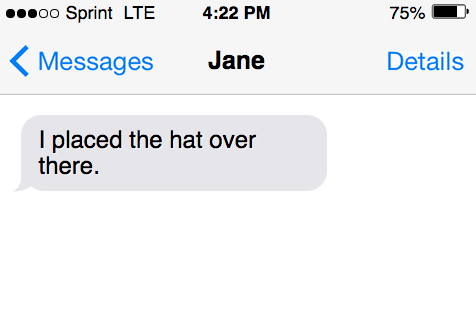
For example, here are some of the most popular contractions in grammar:
- can’t = cannot
- don’t = do not
- won’t = will not
- shouldn’t = should not
- it’s = it is
Sentences with “their,” “they’re,” and/or “there”
“Their grammar workout was placed over there.”
“They’re aware of the differences between the spelling, but their mistakes went unnoticed.”
“Is there a correct way to go in the opposite direction of the town hall?”
“They’re asking how the term is spelled, but the professor won’t provide a correct response.”
“Don’t ask the people over there; they’re the opposite of helpful.”
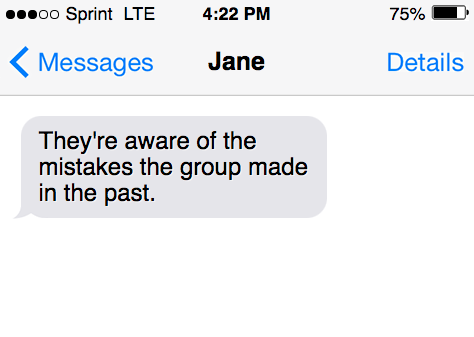
Why are these commonly confused words?
“Their,” “there,” and “they’re” are some of the most frequently confused words.
This confusion is primarily due to the fact that all three words sound exactly the same.
When terms sound the same, they are called homophones.
Other homophones include “rose” and “rows,” or “toe” and “tow.”
Or the word “heir” and “air.”
As you can see, the terms have different spellings and, therefore, different meanings.
To avoid making the common mistake of mixing up “their,” “there,” and “they’re,” you must understand the correct homophone to use in any given sentence.
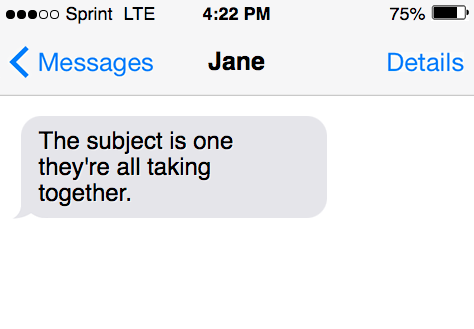
How to remember the difference between each word
The word “there” is the most commonly used version, and it has “here” in it.
This is helpful because the term is associated with a location.
“They’re” is a combination of “they” and “are.”
Before using it in a sentence, break down the term and see if it’s still clear when it is read as “they are.”
Lastly, “their” shows possession of the word “they.”
Remember, using the correct version of the word is integral to a grammatically correct phrase.
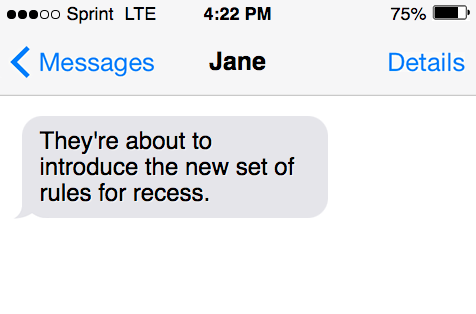
Sources
- How to Use They’re, There, and Their – Merriam-Webster
- There definition – Merriam-Webster
- Their definition – Merriam-Webster
- Possessive Pronouns and Possessive Adjectives: Rules and Examples – Grammarly
- Grammar: Contractions – GCFGlobal
- Contraction (grammar) – Wikipedia
- Examples of Homophones
Inside this article
Fact checked:
Content is rigorously reviewed by a team of qualified and experienced fact checkers. Fact checkers review articles for factual accuracy, relevance, and timeliness. Learn more.
Core lessons
Glossary
- Abstract Noun
- Accusative Case
- Anecdote
- Antonym
- Active Sentence
- Adverb
- Adjective
- Allegory
- Alliteration
- Adjective Clause
- Adjective Phrase
- Ampersand
- Anastrophe
- Adverbial Clause
- Appositive Phrase
- Clause
- Compound Adjective
- Complex Sentence
- Compound Words
- Compound Predicate
- Common Noun
- Comparative Adjective
- Comparative and Superlative
- Compound Noun
- Compound Subject
- Compound Sentence
- Copular Verb
- Collective Noun
- Colloquialism
- Conciseness
- Consonance
- Conditional
- Concrete Noun
- Conjunction
- Conjugation
- Conditional Sentence
- Comma Splice
- Correlative Conjunction
- Coordinating Conjunction
- Coordinate Adjective
- Cumulative Adjective
- Dative Case
- Determiner
- Declarative Sentence
- Declarative Statement
- Direct Object Pronoun
- Direct Object
- Diction
- Diphthong
- Dangling Modifier
- Demonstrative Pronoun
- Demonstrative Adjective
- Direct Characterization
- Definite Article
- Doublespeak
- False Dilemma Fallacy
- Future Perfect Progressive
- Future Simple
- Future Perfect Continuous
- Future Perfect
- First Conditional
- Irregular Adjective
- Irregular Verb
- Imperative Sentence
- Indefinite Article
- Intransitive Verb
- Introductory Phrase
- Indefinite Pronoun
- Indirect Characterization
- Interrogative Sentence
- Intensive Pronoun
- Inanimate Object
- Indefinite Tense
- Infinitive Phrase
- Interjection
- Intensifier
- Infinitive
- Indicative Mood
- Participle
- Parallelism
- Prepositional Phrase
- Past Simple Tense
- Past Continuous Tense
- Past Perfect Tense
- Past Progressive Tense
- Present Simple Tense
- Present Perfect Tense
- Personal Pronoun
- Personification
- Persuasive Writing
- Parallel Structure
- Phrasal Verb
- Predicate Adjective
- Predicate Nominative
- Phonetic Language
- Plural Noun
- Punctuation
- Punctuation Marks
- Preposition
- Preposition of Place
- Parts of Speech
- Possessive Adjective
- Possessive Determiner
- Possessive Case
- Possessive Noun
- Proper Adjective
- Proper Noun
- Present Participle
- Prefix
- Predicate



